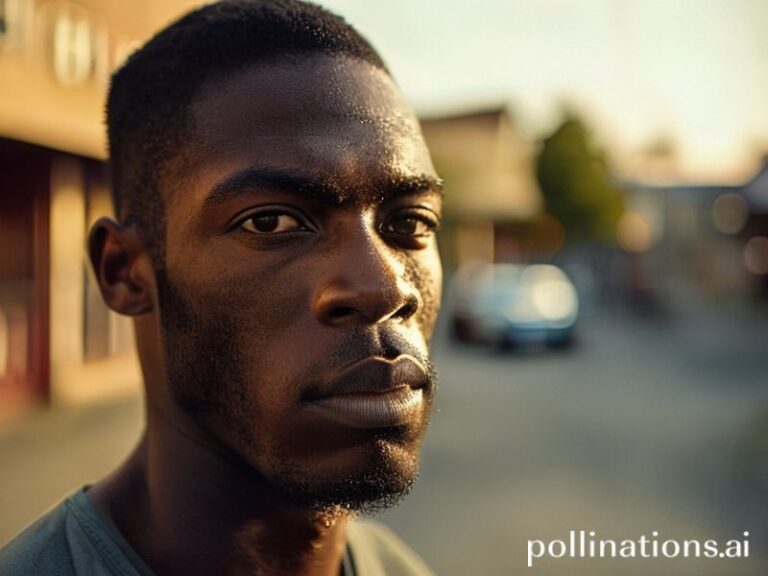Ryan Gravenberch: How One Dutch Midfielder Became the World’s Favorite Transfer Rorschach Test
Ryan Gravenberch: The Dutch Midfielder Who Became a Global Metaphor for Everything Wrong With Modern Football
By the time Ryan Gravenberch finally escaped Bayern Munich’s substitute bench last autumn—fleeing south like a budget-conscious retiree discovering Portugal—the planet had already digested three new iPhone iterations, one attempted coup in Brasília, and the quiet death of the 1.5 °C climate target. Yet in the grand bazaar of global attention, the 21-year-old Amsterdammer’s loan-cum-permanent transfer to Liverpool still trended from Lagos to Lagos-on-Thames, proving that nothing unites humanity quite like arguing over someone else’s career choices.
Gravenberch, for the uninitiated, is the human embodiment of UEFA’s neoliberal fever dream: 6’3”, velvet first touch, passport full of stamps before he could legally order a pilsner. He debuted for Ajax at 16, back when the world still pretended to care about decorum, and was promptly anointed “the next Seedorf,” because nothing lubricates a highlight reel like the weight of racially coded expectation. Bayern scooped him up in 2022 for €18 million plus add-ons—roughly the cost of two Leopard tanks that Berlin can’t currently spare—then discovered, to their Teutic horror, that not every talented teenager thrives on 11 minutes of Bundesliga football and a diet of public shaming.
Cue Liverpool, a club whose fan base has spent the last decade oscillating between socialist nostalgia and Gulf-state envy. Jürgen Klopp, the Bundesliga’s favorite export after discount beer, sold Gravenberch on the romantic notion of “gegenpressing climate change,” or at least on the chance to outrun Manchester City’s Emirati petrol budget for 90 minutes. Since arriving, the Dutchman has oscillated between regal and raw, scoring against Union SG while simultaneously looking like he’s googling “offside trap” during water breaks. In other words, perfect content.
The international significance? Gravenberch’s saga is a case study in how the global south bankrolls the vanities of the global north. His transfer fee was ultimately underwritten by Liverpool’s majority owner, Fenway Sports Group, whose portfolio includes NASCAR, the Boston Red Sox, and enough real-estate plays to make a Vancouver landlord blush. Meanwhile, Lagos cable subscribers pay Premier League broadcast tariffs that dwarf monthly minimum wage, ensuring that a kid from Amsterdam can beamed live into an Alaba Market viewing center where the generator coughs like a 19th-century poet. Call it trickle-down fandom: the wealth doesn’t drip, but the anxiety does.
Across Asia, Gravenberch’s shirt sales compete with K-pop albums for the disposable income of Jakarta teens who may never set foot in Europe but can recite his heat-map stats like Qur’anic verse. In Seoul, a luxury boutique already markets “Gravenberch-core” oversized trench coats—because nothing says football like cosplaying a midfielder who’s allergic to winter. And in Riyadh, officials reportedly took notes on the deal structure while planning their next USD 200 million raid, proving that even petrostates need Excel tutorials.
Yet beneath the sarcasm lies a darker truth: Gravenberch is a migrant worker, just with better branding. His value rises or falls on the whims of oligarchs, venture capitalists, and algorithmic engagement metrics that would give Cambridge Analytica performance anxiety. If he tears an ACL tomorrow, the same feeds now hyping his progressive passes will pivot within minutes to a 17-year-old Uruguayan deemed “the next Gravenberch,” thereby completing the ouroboros of content. Fans will argue whether he “has the mentality,” a phrase never applied to hedge-fund interns burning out at Goldman but routinely weaponized against 21-year-olds who dare to look pensive.
Still, watch him glide past a press with that languid stride and you remember why the circus endures: because sport, unlike geopolitics, occasionally allows redemption to fit within 90 minutes. For now, Gravenberch remains a floating signifier—of Dutch renewal, of post-Brexit Liverpool, of late-capitalist spectacle—hoping to avoid the fate of previous saviors who became cautionary podcasts. Should he help end England’s 34-year wait for a league title, expect Dutch exporters to cite him in trade brochures, Rwandan coffee brands to Photoshop him into adverts, and some enterprising soul in Manila to bootleg his face onto a dengue-awareness mural.
In the end, the joke isn’t on Gravenberch; it’s on the rest of us, refreshing transfer rumors while the Arctic burns. We’ve turned a shy kid into a global Rorschach test, projecting our hunger for meaning onto his calf muscles. May he stay injury-free, if only so we can keep pretending the beautiful game is about football, not the invoice we keep forwarding to the future.







